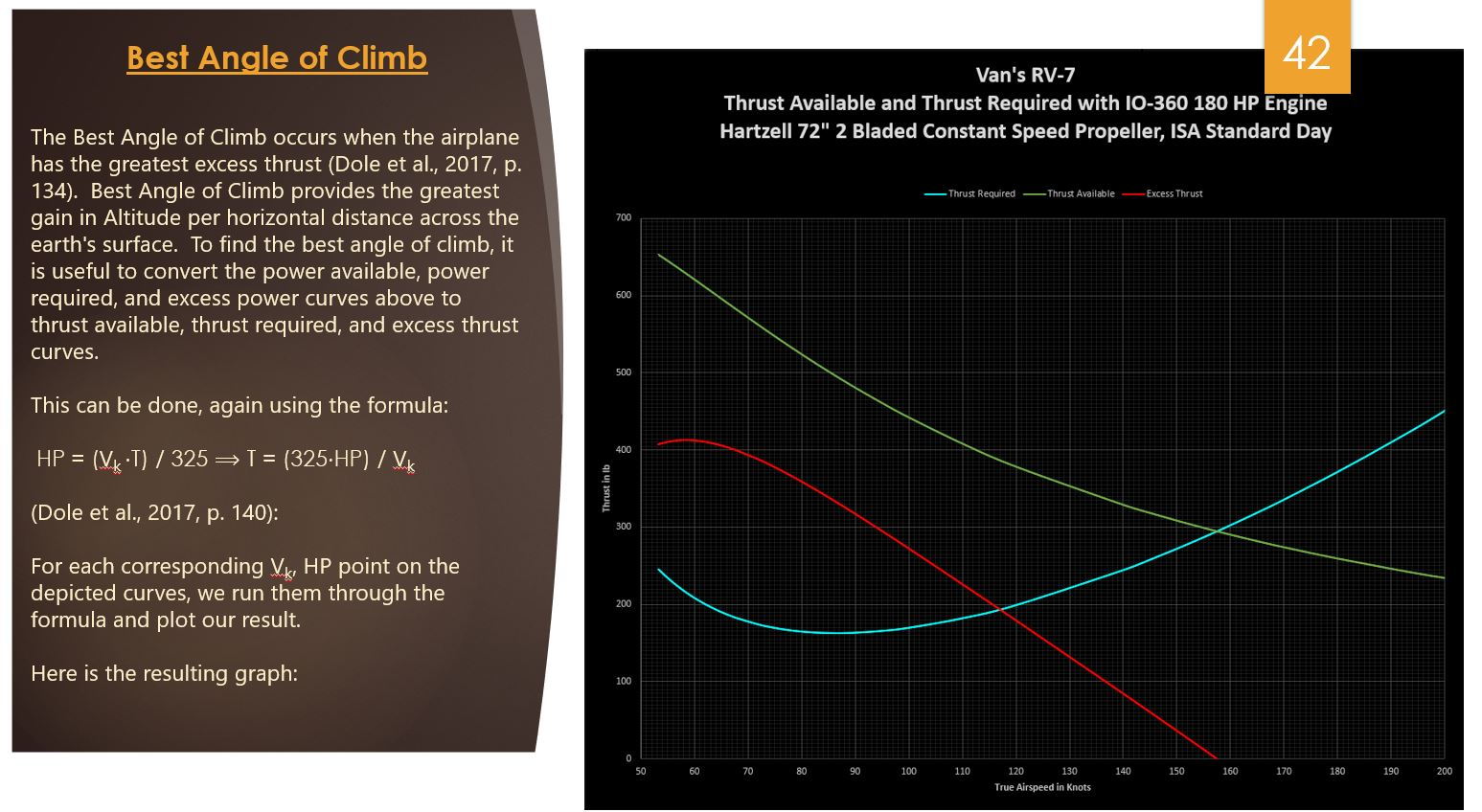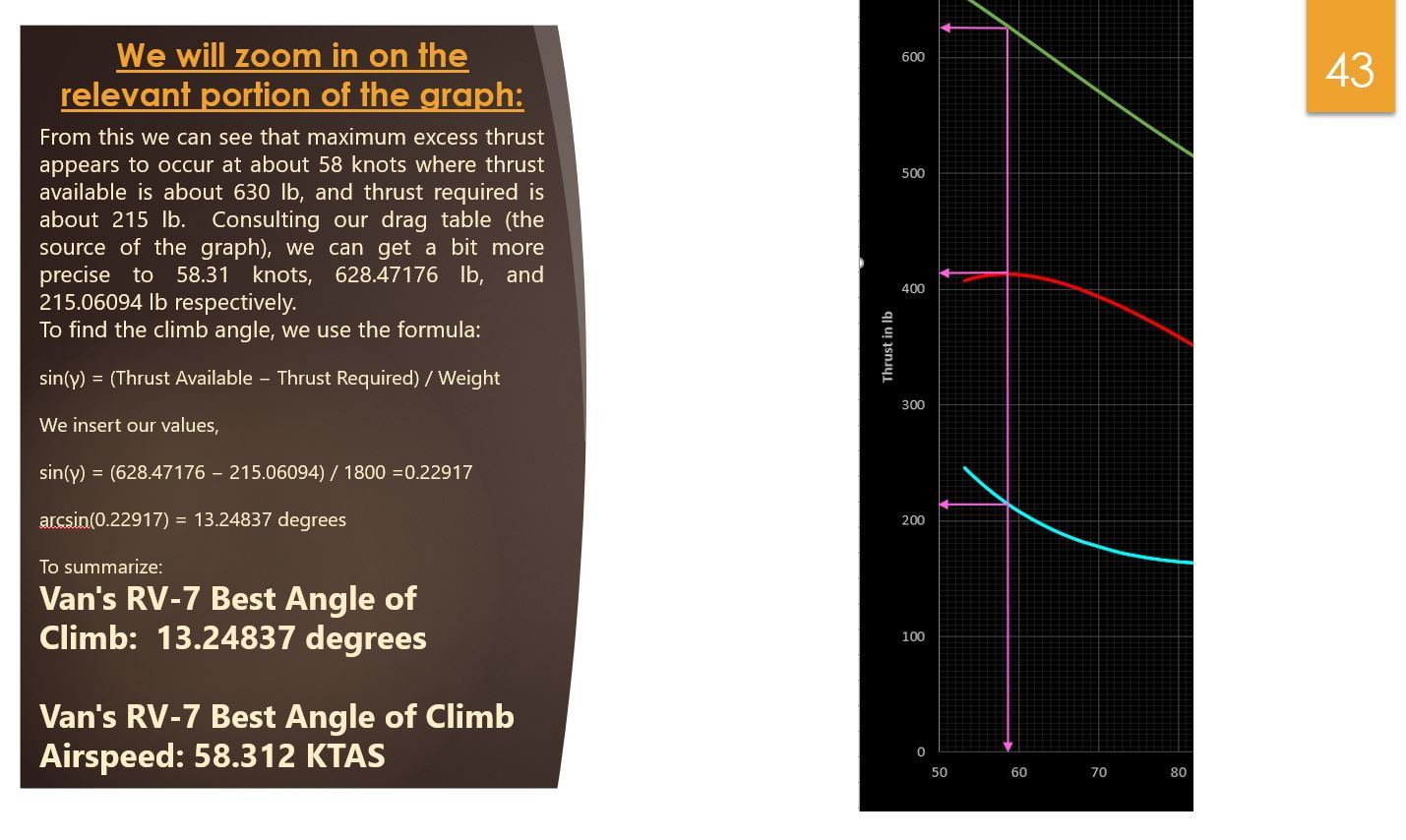VX and VY
Join Date: Nov 2005
Location: Zulu Time Zone
Posts: 730
Likes: 0
Received 0 Likes
on
0 Posts
Flight manual of A-1B says absolute ceiling is 16000ft (by extrapolating the climb curves at ISA temperatures from 6000 ft to 10000ft)....Another potential explanation besides a typo is that Aviat does not like recommending climbing at that speed and decided to pad some margin on VX, because it is so close to stall speed on that aircraft.
the A-1A is basically the same aircraft as the A-1B and has all similar performance data except, suspiciously, Vx which is 58MPH at sea level and 60MPH at 10000 ft, likely the correct values for the A-1B give or take a knot.
Edited to say: under 'Balked Landing' in the AFM the sea level Vx is quoted to be 74 mph (!). Also, according to their 'Normal Procedures' the climb speed to be established for max performance take-off is 65 mph whereas in the performance section they quote 70 mph for the max performance take-off. All in all I think it is fair to say that Aviat (and the FAA) have made a right old mess of getting the performance data into the manual.
Last edited by oggers; 5th May 2020 at 10:29.
Join Date: Mar 2011
Location: Earth
Posts: 172
Likes: 0
Received 0 Likes
on
0 Posts
I do think the built in margin over stall for the published Vx is most likely. Perhaps in Aviat's opinion, Vy doesn't get close enough to stall speed until you're high enough to be well clear of terrain in most cases to bother applying the same correction.
Here is a an aerodynamics project we worked on during University for the Van's RV-7. Sea Level, flaps up, 1800 lb (MGTOW), ISA standard conditions:
Published Vx = 66 KTAS.
Calculated Vx = 58 KTAS
Vs = 53 KTAS.
Compare that to Vy, which we calculated at 84 KTAS and was published as 84 KTAS. The inflation to published Vx was undoubtedly Van's making a decision to prioritize stall margin over climb performance. If an experimental manufacturer/builder does this, it's almost certain a certified manufacturer would, given the liability differences.


Here is a an aerodynamics project we worked on during University for the Van's RV-7. Sea Level, flaps up, 1800 lb (MGTOW), ISA standard conditions:
Published Vx = 66 KTAS.
Calculated Vx = 58 KTAS
Vs = 53 KTAS.
Compare that to Vy, which we calculated at 84 KTAS and was published as 84 KTAS. The inflation to published Vx was undoubtedly Van's making a decision to prioritize stall margin over climb performance. If an experimental manufacturer/builder does this, it's almost certain a certified manufacturer would, given the liability differences.


Last edited by RandomPerson8008; 5th May 2020 at 13:10.
Join Date: Nov 2005
Location: Zulu Time Zone
Posts: 730
Likes: 0
Received 0 Likes
on
0 Posts
I do think the built in margin over stall for the published Vx is most likely. Perhaps in Aviat's opinion, Vy doesn't get close enough to stall speed until you're high enough to be well clear of terrain in most cases to bother applying the same correction.
If it was about choosing a Vx to increase the stall margin - which is hypothetically plausible - it would defeat the object to retain a Vy for 10,000' which was slower than a Vx that had been chosen to be a safe minimum. Quite apart from the absurdity of recommending a Vx which actually results in a lesser climb gradient than the corresponding Vy, particulalry in an aircraft we know is often operated in mountainous terrain at those altitudes. Considering that there are at least 3 anomalies existing in this AFM around Vx, it is obvious that they have simply made a mistake. These things happen.




